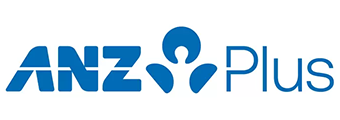
- The decision on the product depends on your appetite to lock your funds away at a fixed rate of interest, versus having access to your cash knowing interest rates could fall.
- You'll also have to keep in mind things like minimum deposits with TDs, versus maximum balances on many of the top savings accounts.
- Once you're locked in, TDs are lower maintenance, while many savings accounts these days require you to meet monthly conditions.
- It's generally not advised to open a TD unless you can see out the term, unless you want to face penalties or can prove financial hardship.
If you're looking for a safe way to grow your money and earn interest, savings accounts and term deposits are options worth considering. These are relatively low-risk products, especially given the government guarantees up to $250,000 of your funds with any ADI (authorised deposit-taking institution). But which of these might be the better option?
Typically, this will depend on your personal circumstances including your budget and cash flow, your savings habits, and whether you have short or long term savings goals.
We've examined the differences and similarities between the two to help you make an informed decision about which may suit your needs best.
What is a term deposit?
A term deposit is a secure way of investing a sum of money and earning interest. With a term deposit, you lock away a lump sum of money for a set period of time (the 'term'). Terms vary, but usually range from as short as one month to as long as five years.
Many factors determine how a bank sets their term deposits' interest rates, such as the bank's wholesale funding costs and outlook on the RBA cash rate.
During a term deposit's life, you won't have access to your money. However, you will get a guaranteed rate of interest. This could benefit you if the official cash rate decreases during your term deposit period.
If you do want to access your money before the deposit matures, you may have to sacrifice a lot of interest or even pay a fee, which could see you in the red.
Once the set term is reached, you typically have two choices: you can either withdraw your cash plus your interest, or choose to roll it over into a new term deposit which could have a different rate on offer by the bank.
Term deposits will generally give you the option of having interest paid monthly, half yearly, annually, or at the end of the term (maturity). Some products might even allow interest payments upfront. There are usually better interest rates on products with interest payable annually or at-maturity.
To compare term deposit rates, take a look at the table below.
Bank Term Deposit Interest Rate Interest Frequency Term Automatic Rollover Maturity Alert Early Withdrawal Available Minimum Deposit Maximum Deposit Notice Period to Withdraw Account Keeping Fee Online Application Joint Application Tags Features Link Compare Promoted Product Disclosure
Disclosure
Promoted
Disclosure
What are the pros and cons of a term deposit?
Pros
- Your money is safe - term deposits are guaranteed by up to $250,000 with an authorised deposit-taking institution (ADI).
- Your savings are locked away - removes the temptation to dip into your savings on an impulse purchase.
- Guaranteed fixed rate of interest - you know exactly how much you will earn, even if interest rates on other products drop during the term.
- Most term deposits have no set-up or account fees.
- There are usually no hoops to jump through such as a minimum monthly deposit as has come to be associated with bonus savings accounts.
Cons
- Your savings are locked away - should you need to access your money sooner, you may need to give a notice period (31 days) and you'll likely be charged a penalty fee.
- You cannot make additional deposits - once you have made the initial deposit, you cannot add to the balance until the term ends.
- Minimum balance deposit - typically between $1,000 and $5,000.
- Fixed interest rate - if rates rise, you won't be able to take advantage of a better rate.
- Interest is simple, not compounded like with a savings account. This means your interest doesn't earn interest - it is paid out at designated intervals.
- A lot of the time, term deposit rates are lower than the prevailing savings account rate of the day, but you might look like a genius if you locked-in and interest rates fell.
What is a savings account?
A savings account is a bank account set up to grow your savings, generally by paying interest on the balance of the account. Your money is available to you if you need to access it - however, some accounts may have added incentives for regular deposits and disincentives for withdrawals.
Unlike term deposits, the interest rate on savings accounts is not fixed, so changes to the official cash rate could impact your return.
There are a range of options when it comes to savings accounts, each with slightly different features. For example, some may offer bonus interest when certain conditions are met, such as growing the account balance by the end of the month, and/or making no withdrawals during the month.
See Also: The Different Types of Savings Accounts
To compare a range of savings accounts, take a look at the table below.
| Bank | Savings Account | Base Interest Rate | Max Interest Rate | Total Interest Earned | Introductory Term | Minimum Amount | Maximum Amount | Linked Account Required | Minimum Monthly Deposit | Minimum Opening Deposit | Account Keeping Fee | ATM Access | Joint Application | Tags | Features | Link | Compare | Promoted Product | Disclosure |
|---|---|---|---|---|---|---|---|---|---|---|---|---|---|---|---|---|---|---|---|
1.55% p.a. | 4.45% p.a. Intro rate for 5 months then 1.55% p.a. | $555 | 5 months | $0 | $99,999,999 | $0 | $0 | $0 | |||||||||||
0.01% p.a. Bonus rate of 4.14% Rate varies on savings amount. | 4.15% p.a. | $846 | – | $0 | $99,999,999 | $1 | $0 | $0 | |||||||||||
0.10% p.a. Bonus rate of 4.15% Rate varies on savings amount. | 4.25% p.a. | $867 | – | $0 | $99,999,999 | $$formattedMinMonthlyDep.format("%,d",$!{product.minimumMonthlyDeposit}) | $0 | $0 | |||||||||||
4.25% p.a. | 4.25% p.a. | $867 | – | $0 | $4,999 | $0 | $0 | $0 |
What are the pros and cons of a savings account?
Pros
- You can access your savings when you need to, while still earning interest.
- You can add to your savings account at any time.
- There is usually no minimum deposit required.
- You may be able to link to an everyday transaction account.
- Interest rates may rise, giving you a greater return on your initial deposit.
Cons
- Variable interest rate - if interest rates fall, you won't earn as much.
- You may be required to make minimum monthly deposits to earn bonus interest rates.
- You may need to maintain a certain balance to avoid any potential fees or loss of interest rate benefits.
- Easy access to your money - may tempt you to dip into your savings for unnecessary spending.
- There are typically deposit caps of around $50,000 to $100,000 on many of the top-earning accounts. Many term deposits allow up to $1 million or greater, though keep in mind only $250,000 is covered under the government guarantee.
Savings accounts vs term deposits: What’s the difference?
The key differences between these two popular savings products are:
1. Fixed vs variable interest
Once you lock-in a term deposit, the rate won’t change for the life of the term. Savings account rates are variable and can change all the time. In a falling interest rate environment, locking in funds you don’t need for a set period can be handy. Conversely, in a rising interest rate environment, having funds in a savings account can give you freedom to switch banks with more competitive rates.
2. Simple vs compounding interest
Term deposits typically come with simple interest, while savings account interest compounds. This means the interest earns interest. Savings account interest is usually calculated daily and paid monthly. This might seem minor, but the more you have in a deposit, the more drastic the difference.
For example, a 4% p.a. savings account rate on a deposit of $100,000 over a year (assuming no extra deposits are made) would yield $4,074 total interest. Contrast this with simple interest on a TD, which would result in $4,000.
See Also: Savings Account Interest Calculator
3. ‘At call’ vs notice periods and withdrawal penalties
Once you have deposited the money into your term deposit, you won’t be able to access these funds easily until the end of your contracted term. Once you have reached the end of this period you can choose to reinvest a portion or all of the funds at the interest rate stated by your bank, or you can withdraw the funds. There are penalties for withdrawing early, and you’ll usually need to provide 31 days’ notice.
This is as opposed to ‘at call’ savings accounts where the funds are not locked away. While you might sacrifice some bonus interest for withdrawing funds, there won’t be any penalties, and the funds can be withdrawn straight away. Larger amounts of $50,000 or $100,000 or more might still require a call to your bank.
4. Conditions and bonus criteria
As mentioned, term deposits are low maintenance in that once you set, you can forget. In the case of savings accounts, the top interest rates usually require a few hoops to jump through to get there, such as minimum deposits per month, card transactions, growing the balance, age limits and so on.
Many savings accounts have low base interest rates and high bonus rates, for example a 0.50% p.a. base and a 3.50% p.a. bonus rate if conditions are met. So, if you don’t meet the criteria in a month, your deposit won’t get the best interest rate. This is not the case with term deposits.
5. Deposit caps and minimum deposits
Many of the highest interest rates on savings accounts are also capped with maximum deposits of say $50,000 or $100,000. Many term deposits have much more generous caps of $500,000 or even $1 million, however keep in mind the Australian Government’s $250,000 deposit guarantee.
On the other hand, many term deposits also come with minimum deposits. This can be as low as $1,000, but is sometimes $5,000 or even $25,000. If you’re trying to start from scratch a savings account might be a better option as there are usually no minimum deposits to start the account.
Term deposits vs savings accounts: How to choose between the two
Whether you choose to put your money into a term deposit or savings account will depend on your individual circumstances and goals.
A term deposit may be a sensible choice if you've found that having your savings easy to access leads to temptation and spending. It may also be suitable if you won't need to access the money for a set period of time and you're looking for a low-risk option where you can guarantee the interest rate and return.
On the other hand, savings accounts can offer compound interest - so you're earning interest on your interest, instead of interest at the end of a set period. If you're able to let your money sit without touching it, the overall return may be higher. You can also start with zero dollars.









